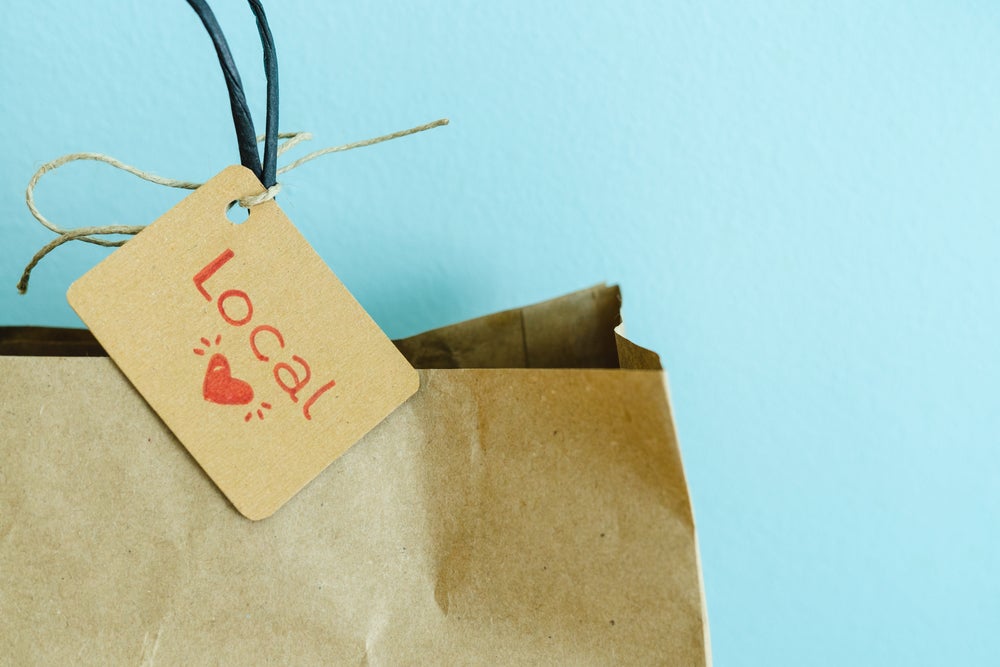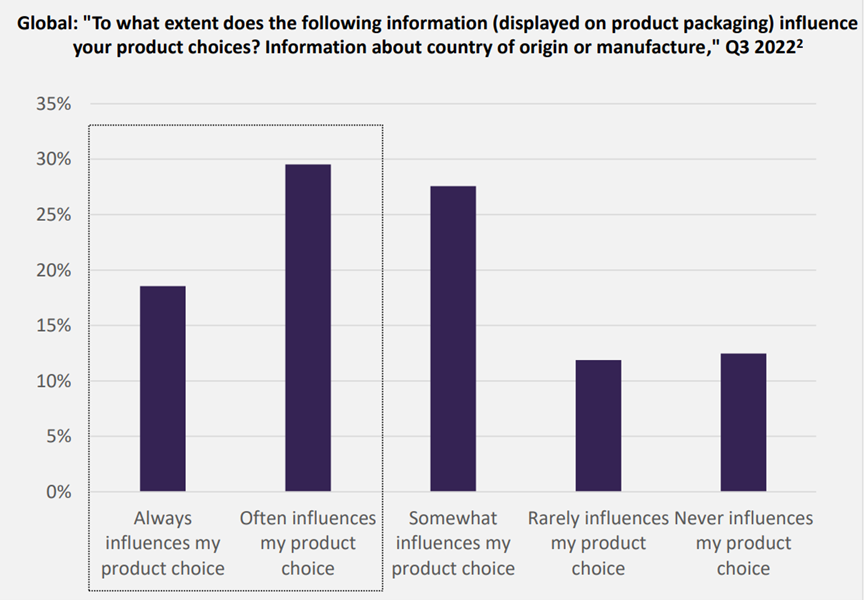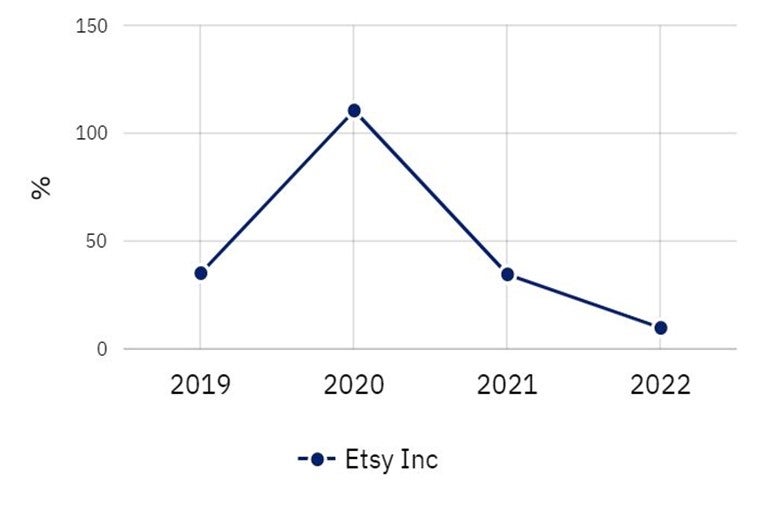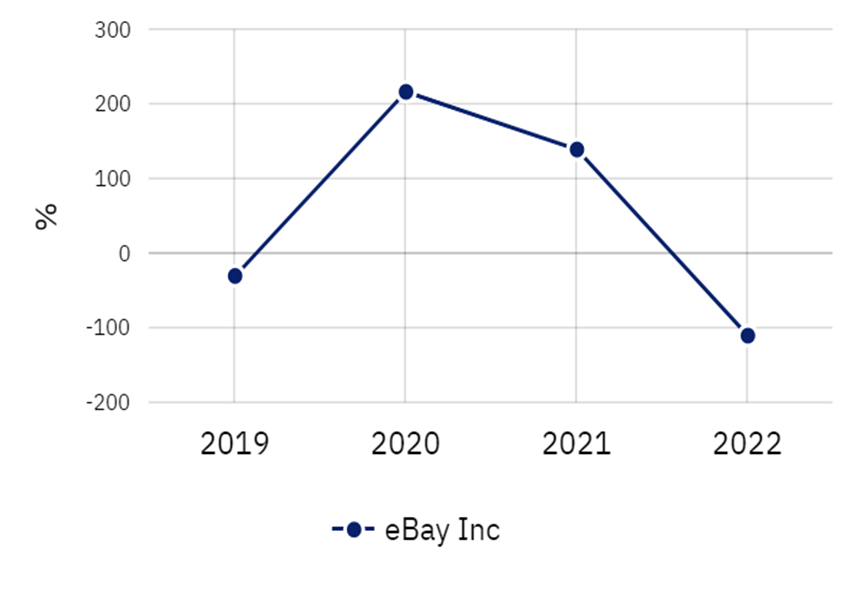
The rising trend of “buying local” has not been deterred by the global cost-of-living crisis, as consumers generally are taking a more conscientious approach to shopping.
The trend can be attributed in part to increasing concerns around climate change, as well as new enthusiasm for supporting local businesses post-covid and frustration around supply issues at major retailers.
Conscientious shoppers are concerned about the environment
Talking about the changing habits of consumers, GlobalData analyst Nidhi Chauhan said: “The shift toward localism was driven by a rise in conscious consumerism, as people sought to make ethical purchasing choices, desiring authentic, locally and sustainably made products that support local businesses.”
A recent survey by GlobalData established that environmental protection is the dominant ethical consideration for consumers, with 47% of respondents saying they would consider paying more for products or services that protected the environment. This was followed by poverty (42%) and climate change (42%), demonstrating a widespread willingness to spend more, despite the cost-of-living crisis making many consumers’ budgets tighter. Only 16% of respondents said that they would not pay more for products based on any of the suggested causes.
This trend in eco-conscious consumerism has been accompanied by a rise in carbon-neutral companies. Growing restaurant chain, Wahaca, became the first group in the UK to be certified as carbon neutral with The CarbonNeutral Protocol in 2016. Companies such as Taylors of Harrogate and Fetzer Vineyards are also certified, whilst other brands, including Bud Light Next, Proper Good and Wildway, are licensed instead by Climate Neutral.
See Also:
Professional certifications have been shown to be important, as consumers generally become more conscientious and look to make better informed choices. Packaging information impacts a product’s appeal, making certified commitments to the environment beneficial to producers when clearly advertised:
How well do you really know your competitors?
Access the most comprehensive Company Profiles on the market, powered by GlobalData. Save hours of research. Gain competitive edge.

Thank you!
Your download email will arrive shortly
Not ready to buy yet? Download a free sample
We are confident about the unique quality of our Company Profiles. However, we want you to make the most beneficial decision for your business, so we offer a free sample that you can download by submitting the below form
By GlobalData
Consumers want to support local retail post-pandemic
Buying local also contributes to a greater sense of fulfilment for consumers; GlobalData reports that 41% of respondents ‘somewhat agreed’ that supporting the local community was more important than buying from larger multinational brands, whilst 22% ‘strongly agreed’, and only 7% ‘strongly disagreed’.
Supporting independent stores keeps money in the community, enabling small businesses to grow and increasing the potential buying power of residents. The move to localism has been encouraged by campaigns such as Totally Locally and catalysed by the Covid-19 pandemic, which saw a new focus after the decrease in footfall in stores across the globe raised questions about the future of retail.
Supporting local retail came to the forefront of consumer focus in 2020, reflected in the net income of online small business stores. The net income of online platforms that supported small businesses – such as Etsy and eBay Inc – reflected closely the lockdowns, as consumers sought to support local production remotely when in-person became impossible.


Local products are deemed ‘better’
‘Local’ has largely become synonymous with ‘high quality’. In 2022, 80% of consumers globally thought that independent brands were high quality, according to GlobalData, demonstrating a perceived positive correlation. According to Chauhan, “the perception of superior quality and safety will drive this [localist] trend in the near future”.
Consumers considering local products to be ‘better’ may help producers to justify higher price points despite the cost-of-living crisis. These goods are certainly better protected from widespread supply chain issues, allowing local companies to meet consumer demands when major brands fail: “The shift to buying locally has primarily stemmed from change in consumers’ lifestyles and disruption in availability of products during the lockdown period,” said Chauhan. Shorter transit times, less vulnerability to global issues (such as the war in Ukraine) and fewer suppliers reduces the risk of disruption.







